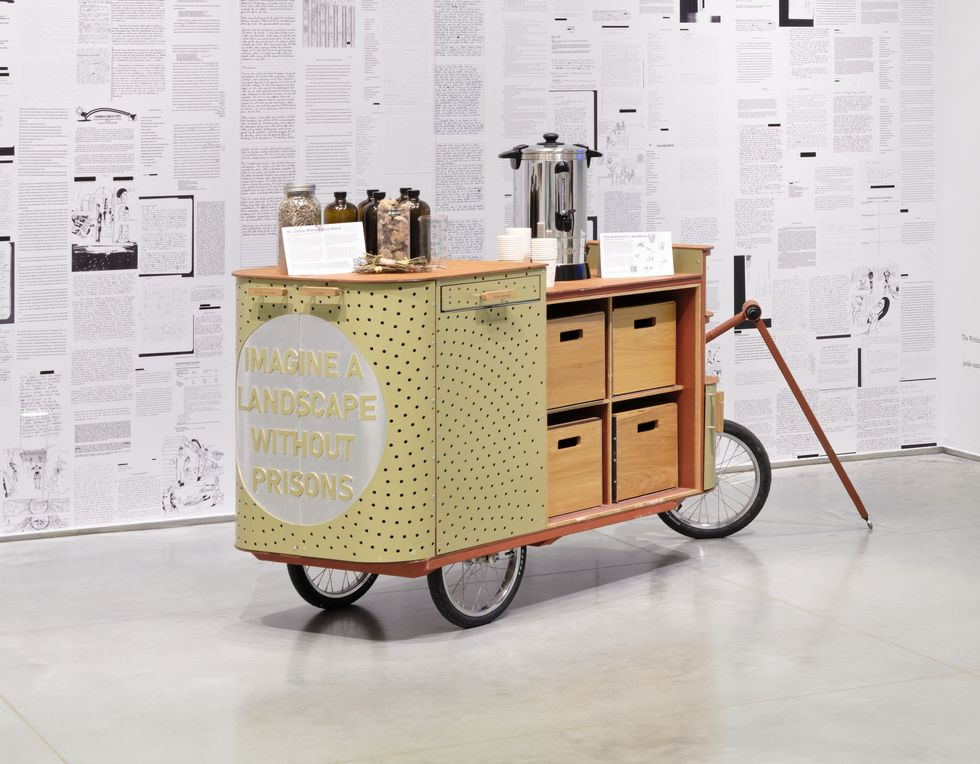
jackie sumell, Abolitionist’s Apothecart, 2021. Courtesy of the artist.
Facilitated by jackie sumell, The Abolitionist’s Tea Party asks, “How does the natural world endorse abolition as a strategy for liberation?” In this workshop, participants will circle up and engage with different plants and herbs, some of which are considered “weeds.” Together, attendees will learn how plants have played key roles in stories of resistance and share their experience and understanding of abolition.
The workshop will offer participants the opportunity to smell and taste teas grown and prepared in collaboration with currently incarcerated people through Solitary Gardens, at The John Thompson Legacy Center in New Orleans. A list of ingredients will be made available at the workshop. Visitors with severe allergies are advised not to consume or engage with the plants.
Seating is limited; registering in advance is recommended. Advance registration includes admission to the Museum.
This program is presented in conjunction with Seeing through Stone, a multi-sited exhibition part of Visualizing Abolition.
About jackie sumell
jackie sumell is a multidisciplinary artist and abolitionist based in New Orleans. sumell’s practice explores the overlay and interplay of creative practices, mindfulness studies, social sculpture, and the principles espoused by her elders, all members of The Black Panther Party for Self Defense. Her twelve-year correspondence and collaboration with political prisoner Herman Wallace, who was held in solitary confinement for over 40 years, led to The House that Herman Built. The project is the subject of the Emmy Award-winning documentary Herman’s House (2013). She has been the recipient of multiple residencies and fellowships including, but not limited to, a Guggenheim Fellowship, S.O.U.R.C.E. Fellowship, A Blade of Grass, Robert Rauschenberg Artist-as-Activist Fellowship, a Soros Justice Fellowship, a Marguerite Casey Foundation Grant, a Headlands Residency, a Schloss Solitude Residency, and sustained support from The Mellon and Ford Foundations.